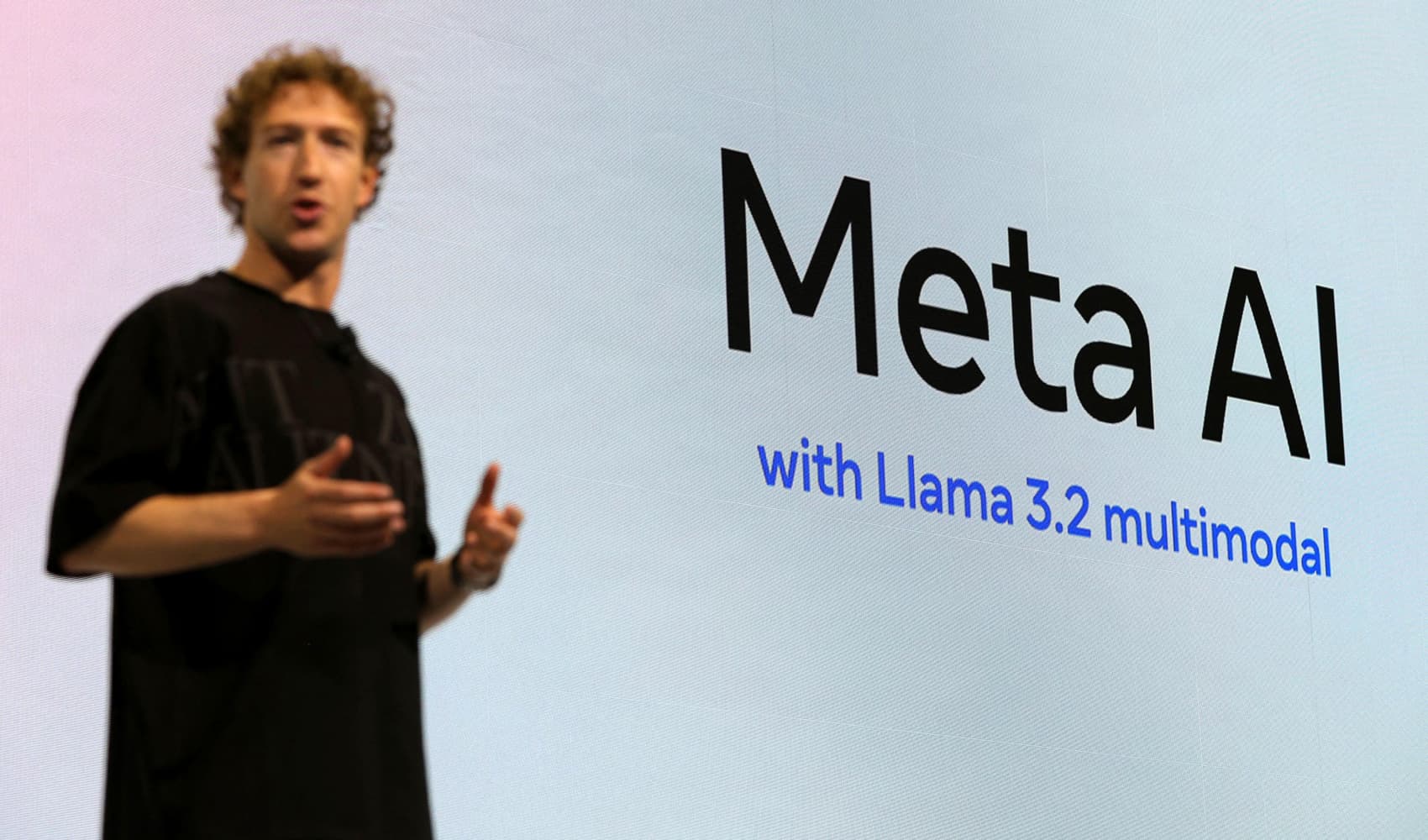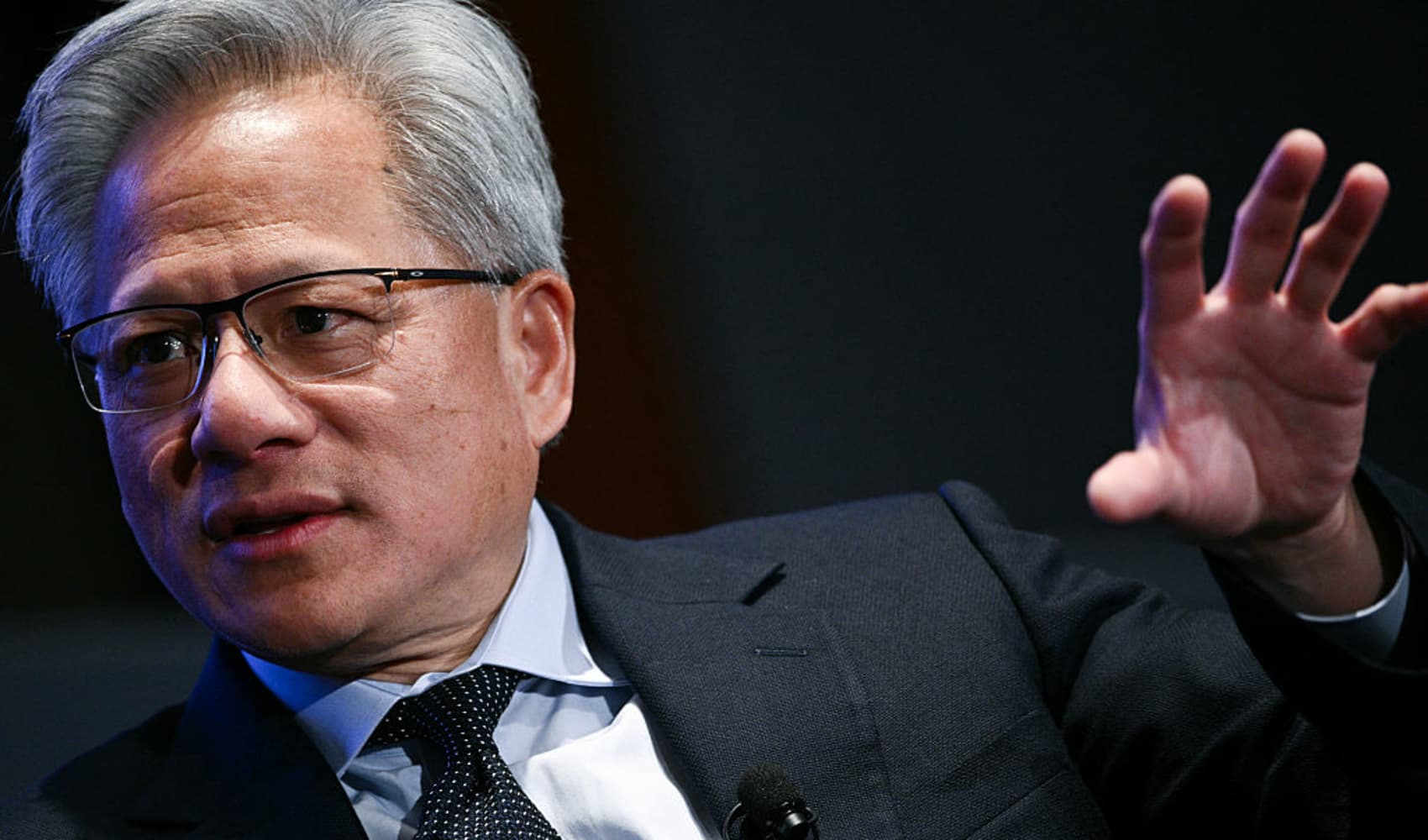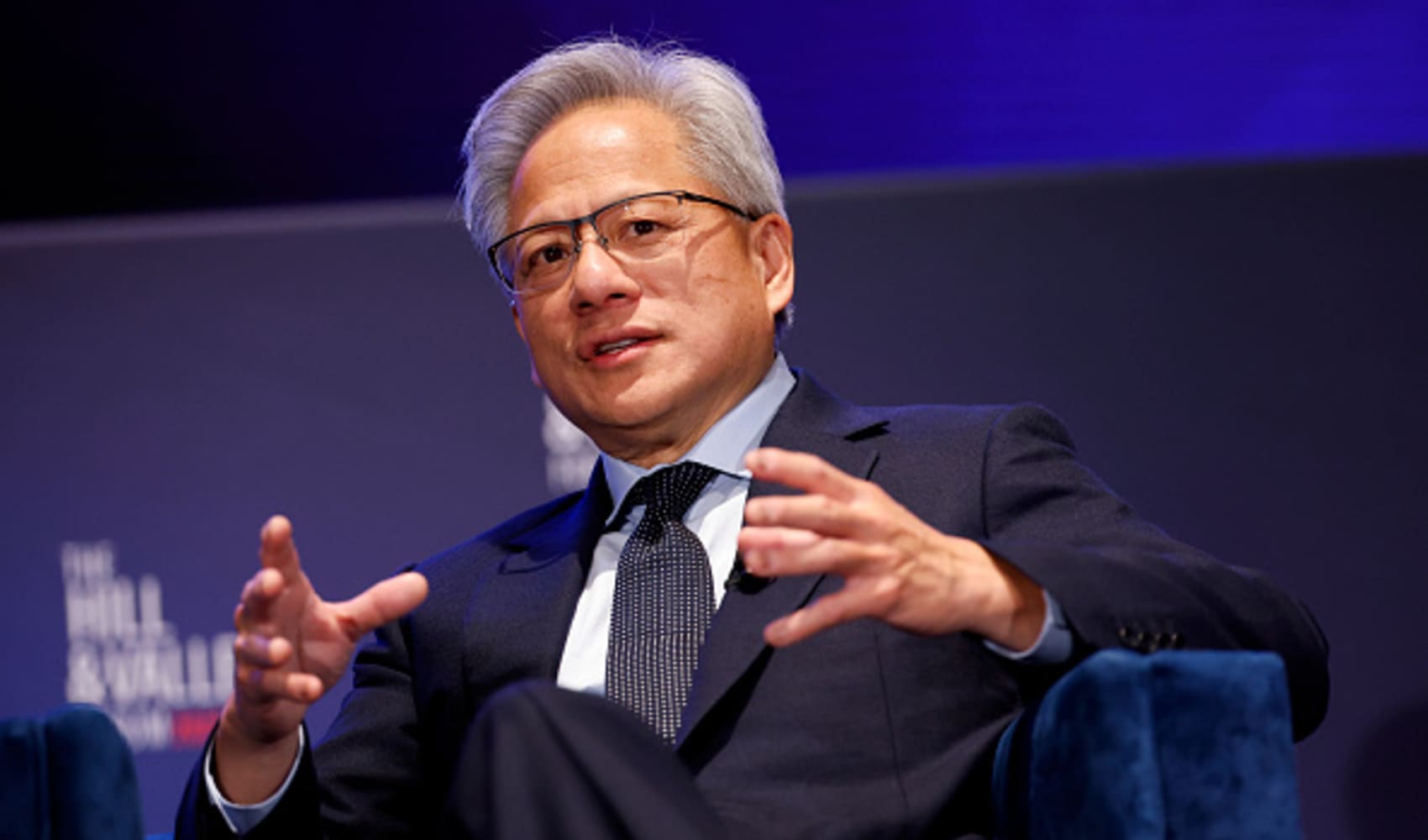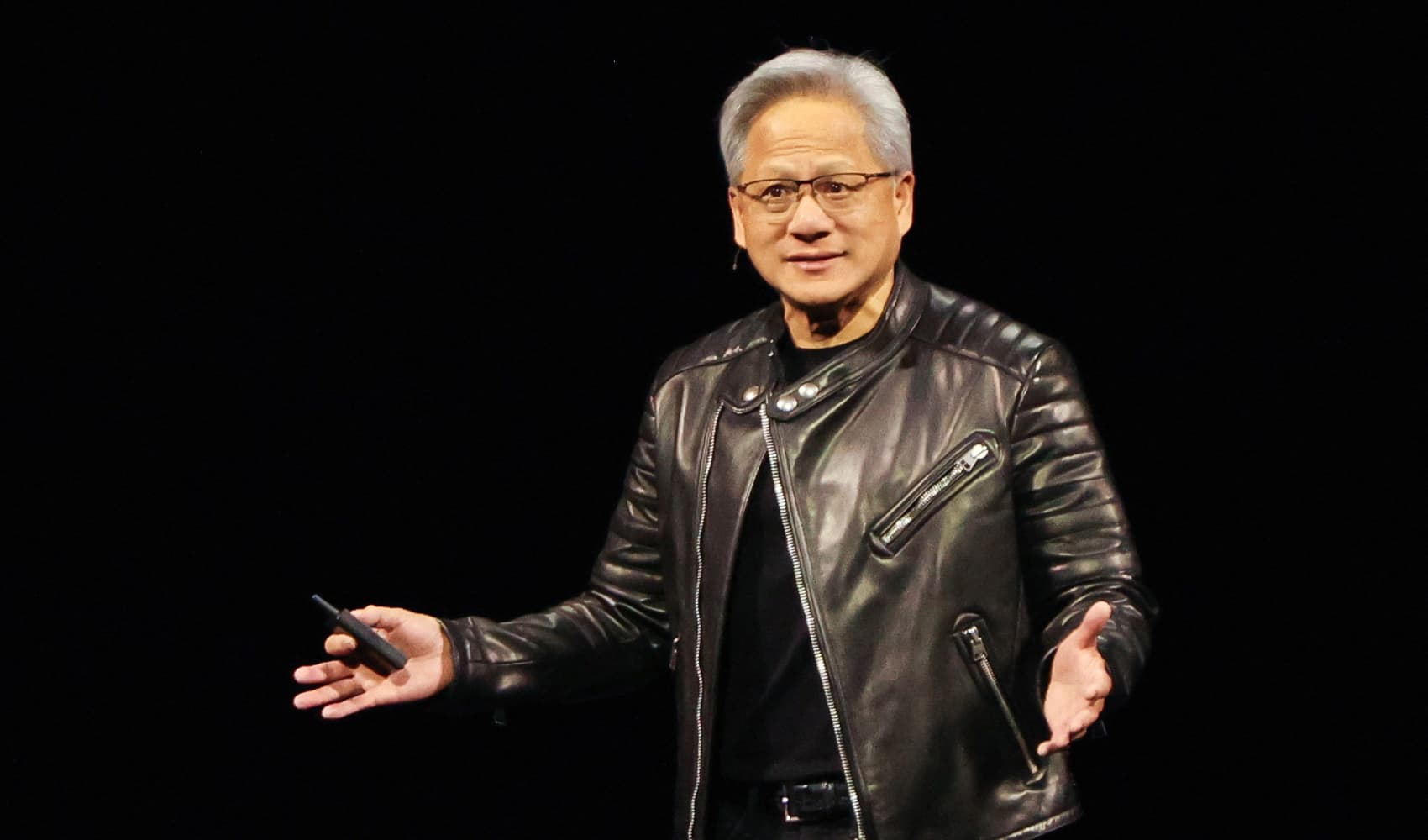Palantir Soaring: 3 Reasons It's Defying Tech's Downturn
Palantir's Unstoppable Rise: Why It's Defying the Tech Downturn
Introduction: Riding the Wave While Others Sink
The tech world in 2025 feels a bit like a stormy sea, doesn't it? Recession anxieties are swirling, and trade war winds are picking up, leaving many tech stocks struggling to stay afloat. Investors are naturally skittish, pulling back from anything that smells even remotely risky. But amidst this chaos, there's one ship sailing steadily, even triumphantly: Palantir. While its peers are battling rough waters, Palantir is soaring, up a remarkable 45% this year. How is this even possible? What's the secret to their success?
Palantir's Exceptional Performance: An Outlier in the Tech Landscape
Let's be clear: Palantir isn't just doing okay; it's dominating. According to FactSet data, Palantir's 45% gain makes it the best performer among companies valued at $5 billion or more. Think about that! VeriSign, Okta, Robinhood, and Uber are posting impressive gains, but they're all trailing behind Palantir. It's not just luck; it's a testament to their strategic focus and unique positioning.
The Government's Embrace: A Foundation of Success
So, what are the key ingredients in Palantir's winning formula? The biggest factor is their strong ties with the government. Palantir has carved out a niche in the defense and software sectors, securing significant contracts with key U.S. government agencies. This provides a level of stability that many other tech companies simply don't have. Imagine building your house on solid rock instead of sand; that's the difference a reliable government partnership makes.
Government Contracts: The Cornerstone of Growth
These government contracts are not just nice to have; they're fundamental to Palantir's revenue stream and future prospects. They provide a consistent and predictable source of income, which is especially valuable in a volatile market. It also sends a strong signal to investors that Palantir's technology is trusted and valued at the highest levels.
Efficiency as a Guiding Principle: A Leaner, Meaner Machine
Beyond government contracts, Palantir has also prioritized efficiency. In an era of bloated tech companies with excessive spending, Palantir has focused on optimizing its operations and cutting costs. This has made them more resilient and attractive to investors who are increasingly wary of wasteful spending.
Cost Optimization: A Key to Resilience
Think of it like this: in a downturn, the company that can survive on less is the company that thrives. Palantir's commitment to efficiency has given them a significant advantage, allowing them to weather the storm better than their competitors.
The AI Advantage: Differentiating Through Innovation
Palantir isn't just another software company; they are deeply invested in Artificial Intelligence (AI). Their AI-enabled tools are setting them apart in the market, attracting attention from both government and commercial clients. In a world increasingly driven by data, AI is the key to unlocking valuable insights and making better decisions.
AI-Powered Solutions: The Future of Data Analysis
Palantir's AI capabilities allow them to analyze vast amounts of data, identify patterns, and provide actionable intelligence to their clients. This is incredibly valuable for government agencies trying to combat terrorism, businesses trying to optimize their supply chains, or healthcare providers trying to improve patient outcomes.
Navigating Recession Fears: Palantir's Defensive Strategy
The looming threat of a recession is undoubtedly weighing on investors' minds. But Palantir's business model is relatively recession-resistant. Government contracts are less likely to be affected by economic downturns compared to consumer spending. This makes Palantir a safer bet in uncertain times.
Recession-Proof Revenue: A Safe Haven for Investors
While other companies are scrambling to cut costs and find new revenue streams, Palantir can rely on its stable government contracts to weather the storm. This gives investors peace of mind and makes Palantir a more attractive investment option.
The Trump Factor (Truncated): A Historical Perspective
President Donald Trump's policies and overhauls of government departments have certainly played a role in Palantir's growth trajectory. While this is a complex topic with multiple viewpoints, it's undeniable that certain initiatives have opened doors for companies like Palantir to provide their services to the government. (Note: This section is intentionally brief to respect potential political sensitivities.)
Beyond Government: Expanding into the Commercial Sector
While government contracts are a vital part of Palantir's success, the company is also actively expanding into the commercial sector. This diversification reduces their reliance on government spending and opens up new opportunities for growth. The expansion is helping to change perceptions of Palantir and their use cases, making their platform more attractive.
Diversification: Reducing Dependence on Government Contracts
Think of it as having multiple streams of income. If one stream dries up, you still have others to rely on. Palantir's expansion into the commercial sector makes them a more resilient and sustainable business in the long run.
Investor Confidence: A Vote of Approval
Ultimately, the stock market is a reflection of investor confidence. Palantir's strong performance is a clear indication that investors believe in the company's long-term prospects. This confidence is fueled by their strong financial performance, strategic focus, and innovative technology.
Market Sentiment: Riding the Wave of Positive Perception
Positive news breeds positive sentiment, which in turn fuels further investment. Palantir is currently riding a wave of positive perception, which is helping to drive its stock price higher.
Challenges and Opportunities: The Road Ahead
Of course, Palantir isn't without its challenges. Maintaining strong relationships with government agencies requires navigating complex political landscapes. Expanding into the commercial sector requires competing with established players. But with its strong leadership, innovative technology, and strategic focus, Palantir is well-positioned to overcome these challenges and continue its impressive growth trajectory.
The Future of Palantir: Innovation and Expansion
Looking ahead, the future looks bright for Palantir. The company is continuing to invest in AI and other cutting-edge technologies, which will allow them to offer even more valuable solutions to their clients. They are also expanding into new markets and industries, which will further diversify their revenue streams.
Conclusion: Palantir's Winning Formula for Success
Palantir's success in a challenging market is a testament to its strategic focus, innovative technology, and strong relationships with government agencies. Their commitment to efficiency, their AI-powered solutions, and their expansion into the commercial sector have all contributed to their impressive growth. While other tech companies are struggling to stay afloat, Palantir is sailing smoothly, proving that with the right strategy, even the roughest seas can be navigated successfully.
Frequently Asked Questions
Here are some frequently asked questions about Palantir and its recent success:
- Why is Palantir outperforming other tech stocks?
Palantir's strong government contracts, focus on efficiency, and AI-enabled tools have allowed it to thrive while other tech companies struggle with recession fears and volatile markets.
- What is Palantir's main source of revenue?
Currently, a significant portion of Palantir's revenue comes from government contracts, particularly with U.S. government agencies.
- Is Palantir expanding beyond government contracts?
Yes, Palantir is actively expanding into the commercial sector, offering its AI-powered solutions to businesses in various industries.
- What are some of the challenges Palantir faces?
Some challenges include navigating complex political landscapes, competing with established players in the commercial sector, and maintaining its reputation.
- What is Palantir's competitive advantage?
Palantir's competitive advantage lies in its AI-powered platform, its expertise in data analysis, and its strong relationships with government agencies, providing unique and valuable solutions to complex problems.









